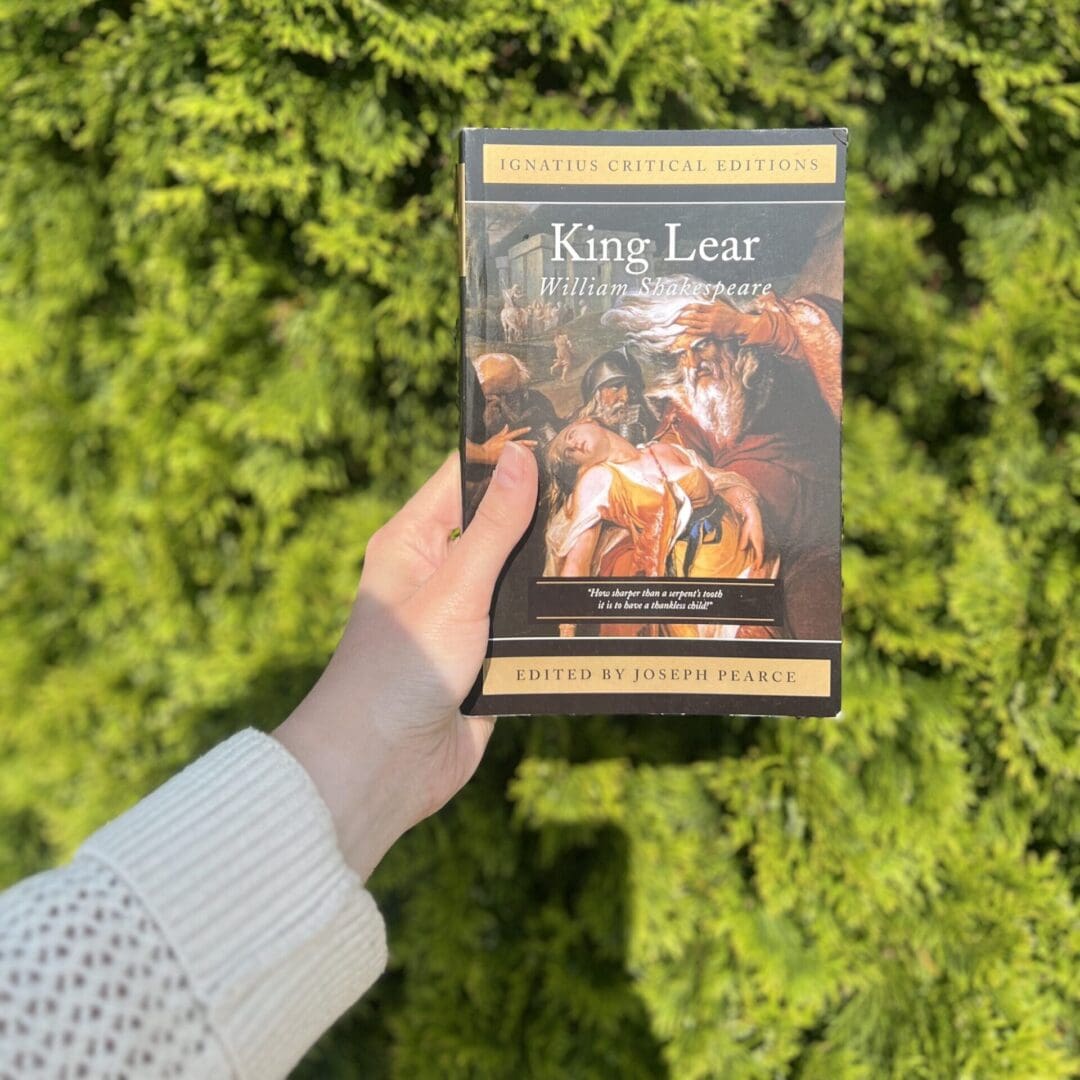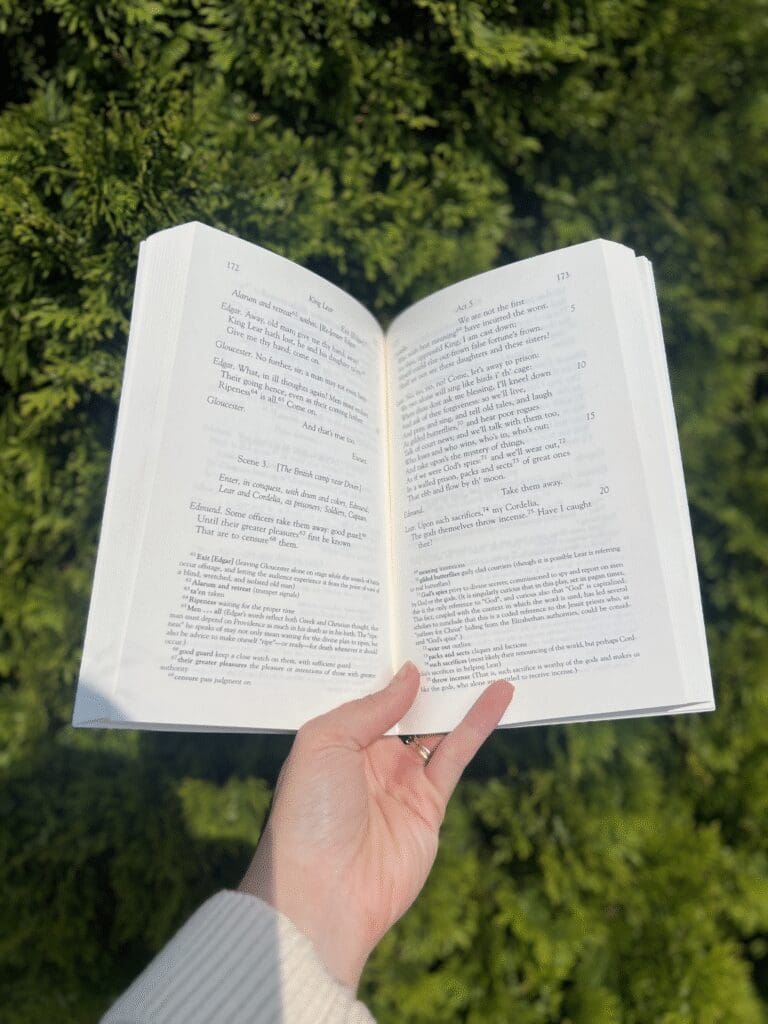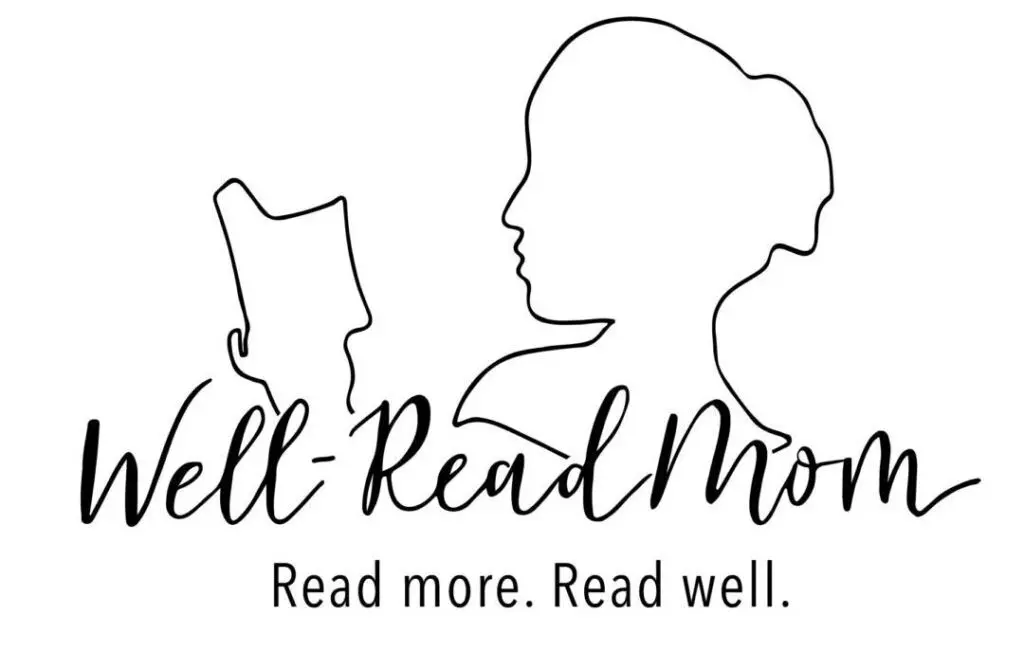Reclaiming My Literary Patrimony: A Reflection on Reading King Lear
Written by Nicki Johnston
As I read King Lear, the word patrimony came to my mind. Of course, the plot of the play centers around a king giving away his inheritance to his daughters. But I was also recalling a phrase that I first encountered in Theology of Home, The Spiritual Art of Homemaking.
In Chapter 8 of the second volume, Carrie Gress and Noelle Mering write about our need for community in a time of modern isolation:
“What is missing and from what have we cut ourselves off? As we march forward, what are we jettisoning along the way? From churches to families, from our historical and literary patrimony in the humanities, to our common mores – more and more often, we have been saying no. For many not raised with any connection to the richness of such things, the no is not of protest but of apathy. It is a shrug, a resounding “meh” to the depths of things we have not penetrated, a rejection without an understanding of what it is we reject” (175-176).

This idea of a “historical and literary patrimony in the humanities” resonated deeply with me as one of my reasons for homeschooling my children. And it also echoes the mission of Well-Read Mom.
By learning alongside my children and reading with my Well-Read Mom groups, I am attempting to reclaim my literary patrimony and penetrate the depths of riches that our culture at large rejects out of apathy. And I can think of no better example of this than the works of William Shakespeare.
Following Charlotte Mason’s philosophy of education, we began reading Shakespeare’s plays when my oldest son was in 4th grade. This seems surprising to modern readers who typically read Shakespeare once in high school and consider his work to be inaccessible or only for the elite.
This wasn’t always the case. Alexis de Tocqueville wrote in his book Democracy in America that “There is hardly a pioneer’s hut that does not contain a few odd volumes of Shakespeare.” Shakespeare’s plays were enjoyed by common folk during the early days of our country (not to mention Shakespeare’s own time), and they can be today as well.
Because we read one of Shakespeare’s plays in each of our three terms per school year – and my oldest son just completed the 7th grade – we have now read twelve of Shakespeare’s plays as a family. His work has become part of our family culture.
While I don’t require my younger sons to participate in our reading of the plays – for that really is all that we do: read (or sometimes listen to a dramatized audio while we follow along with our eyes from our own copies, just as Carlo Galdo suggested in our introductory aduio) and then narrate what we read at the end of each scene – they often choose to stick around and listen.
As with poetry, children don’t seem to mind bearing the tension of not being able to understand everything, and so they simply allow it to wash over them. I’m not sure I agree with Joseph Pearce who said in his deep-dive interview with WRM about King Lear that reading Shakespeare becomes “easy-peasy” once you’ve gone through the initial effort (I still struggle to understand everything I read in his plays), but I don’t let myself get caught up on it – and neither do my children.
They love repeating Shakespeare’s words. I’ll find them reciting memorable lines during their play time, and some phrases have made their way into our family vernacular. When my eleven-year old son complains about his alarm clock, his older brother, with whom he shares a room, quotes As You Like It to him (“And then the whining schoolboy, with his satchel and shining morning face, creeping like snail unwillingly to school”), and even my youngest son, age 5, often responds to a request with (a not-always-correct version of) “I go, I go, look how I go, swifter than an arrow from a Tartar’s bow” (from A Midsummer Night’s Dream).
Each fall our family attends the wonderful Flint Hills Shakespeare festival, and in the spring, I take some of my boys to a local classical high school’s Shakespeare production. Serendipitously, this year’s play was King Lear, and I was able to take my nine-year-old son with me on a date to see it. He delighted in sitting in the front row and – because he is a nine-year-old boy – was especially taken by the scene of Gloucester’s blinding (so much so that when we attended a party with homeschool friends celebrating William Shakespeare’s birthday on April 23, he dressed his younger brother up with “bloody” gauze over his eyes).
I, too, enjoyed watching the play and appreciated a chance to see it on the stage before rereading it on the page. And I am encouraged to know that thousands of women all over the country are reading it now, too.
By reading this great work of literature and then gathering in small groups to discuss it, we are saying yes to our literary patrimony and no to the modern trend of isolation. And through these small but intentional acts, we Well-Read Moms are slowly changing the culture at large.


About Nicki Johnston
Nicki Johnston lives in Kansas with her husband, Graham, and their four sons. Together they homeschool, hike, camp, craft, square dance, and read many, many books.
About Well-Read Mom
In Well-Read Mom, women read more and read well. Our hope is to deepen the awareness of meaning hidden in each woman’s daily life, elevate the cultural conversation, and revitalize reading literature from books. If you would like to have us help you select worthy reading material, we invite you to join and read along with us. We are better together! For information on how to start or join a Well-Read Mom group visit our website wellreadmom.com.

